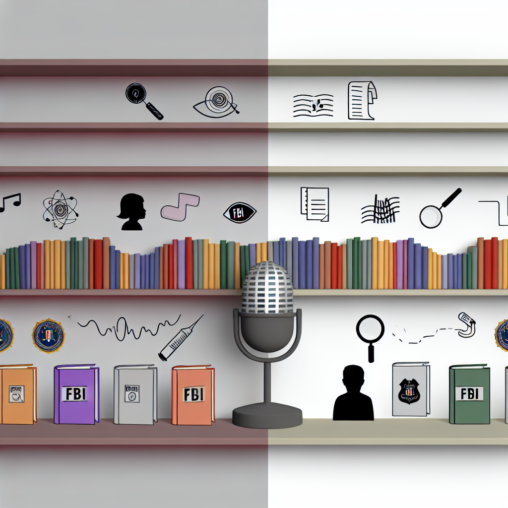“`html
Kash Patel Promotes Conspiracy Theories Through Children’s Books and Podcasts
Kash Patel, a prominent figure in conservative circles and a former Trump administration official, has recently raised eyebrows by leveraging unconventional mediums to promote his controversial viewpoints. Through children’s books and podcasts, Patel has been accused of spreading conspiracy theories, particularly ones aimed at discrediting the FBI, a governmental organization he alleges is embroiled in corruption and political bias.
Children’s Books: Teaching Conspiracies to the Next Generation?
Patel’s bold initiative to pen children’s books has stirred significant debate. Rather than focusing on classic storytelling or educational themes, these books appear to weave narratives laced with conspiracy theories. For instance, one of his books portrays a fictional FBI that is deeply corrupt, echoing Patel’s criticisms of the real-life agency. Critics have pointed out that this approach risks politicizing the minds of young readers, embedding skepticism and distrust toward governmental institutions from an early age.
According to Patel, his goal is to educate children about the challenges he believes are plaguing America today. However, opponents argue that these books are far from educational and instead serve as a thinly veiled attempt to indoctrinate young audiences with his political ideology. This raises ethical questions about the appropriateness of using children’s literature for such purposes.
Podcasts: Amplifying the Message
In addition to his foray into children’s literature, Patel has also turned to podcasts as a platform to consolidate his audience. His podcasts often feature discussions centered around alleged FBI misconduct, the “deep state,” and other popular topics within far-right circles. These podcasts have attracted a loyal following, offering Patel an unfiltered platform to propagate his views to adult audiences.
Critics are quick to point out that many of the claims made in these podcasts lack substantiated evidence. Nevertheless, his audience seems to resonate with his narrative, which positions him as a self-proclaimed whistleblower against systemic corruption. This creates a feedback loop where Patel’s ideas gain traction regardless of their factual accuracy, amplifying their reach in the process.
The Intersection of Media and Ideology
Patel’s dual approach—targeting children through books and adults through podcasts—highlights a strategic effort to influence public perception across generational lines. By tailoring his message for different age groups, he ensures that his perspectives reach a broad and diverse audience. However, this method has sparked fierce backlash from both political analysts and educators.
- Educational experts warn against using children’s books as a tool for spreading political propaganda.
- Media watchdogs have flagged his podcasts as a hub for misinformation and conspiracy theories.
- Critics of Patel argue that his initiatives undermine public trust in institutions like the FBI, which are vital to maintaining democratic governance.
Why This Matters
The controversy surrounding Kash Patel’s initiatives is emblematic of a larger trend within modern media and politics. As individuals increasingly turn to alternative platforms to share their viewpoints, the line between fact and fiction often blurs. Patel’s focus on the FBI, for instance, taps into a broader narrative of distrust in federal agencies promoted by some conservative factions.
This matters because the dissemination of unverified or biased information can have long-term implications for public discourse. When children’s literature and podcasts become avenues for spreading one-sided political narratives, it risks fostering division and perpetuating mistrust within society.
Conclusion: A Polarizing Influence
Kash Patel’s endeavors with children’s books and podcasts demonstrate a calculated effort to share his worldview with an extensive audience. While he frames his work as educational, critics argue that it promotes conspiracy theories and undermines core institutions. Whether viewed as a whistleblower or a provocateur, Patel’s actions undoubtedly reflect the deepening divide in American political and cultural landscapes.
As media consumption habits evolve, the use of unconventional platforms like children’s books and podcasts for advancing political agendas raises ethical and societal questions. It remains to be seen how Patel’s efforts will shape public opinion in the long term, but they already serve as a stark reminder of the power—and potential pitfalls—of media in shaping narratives.
“`

